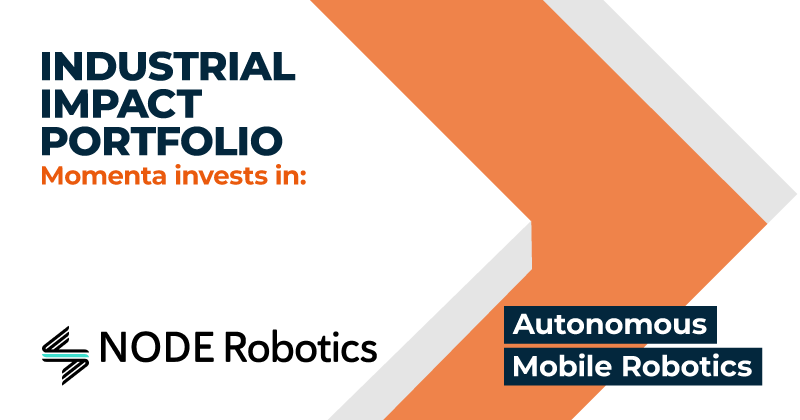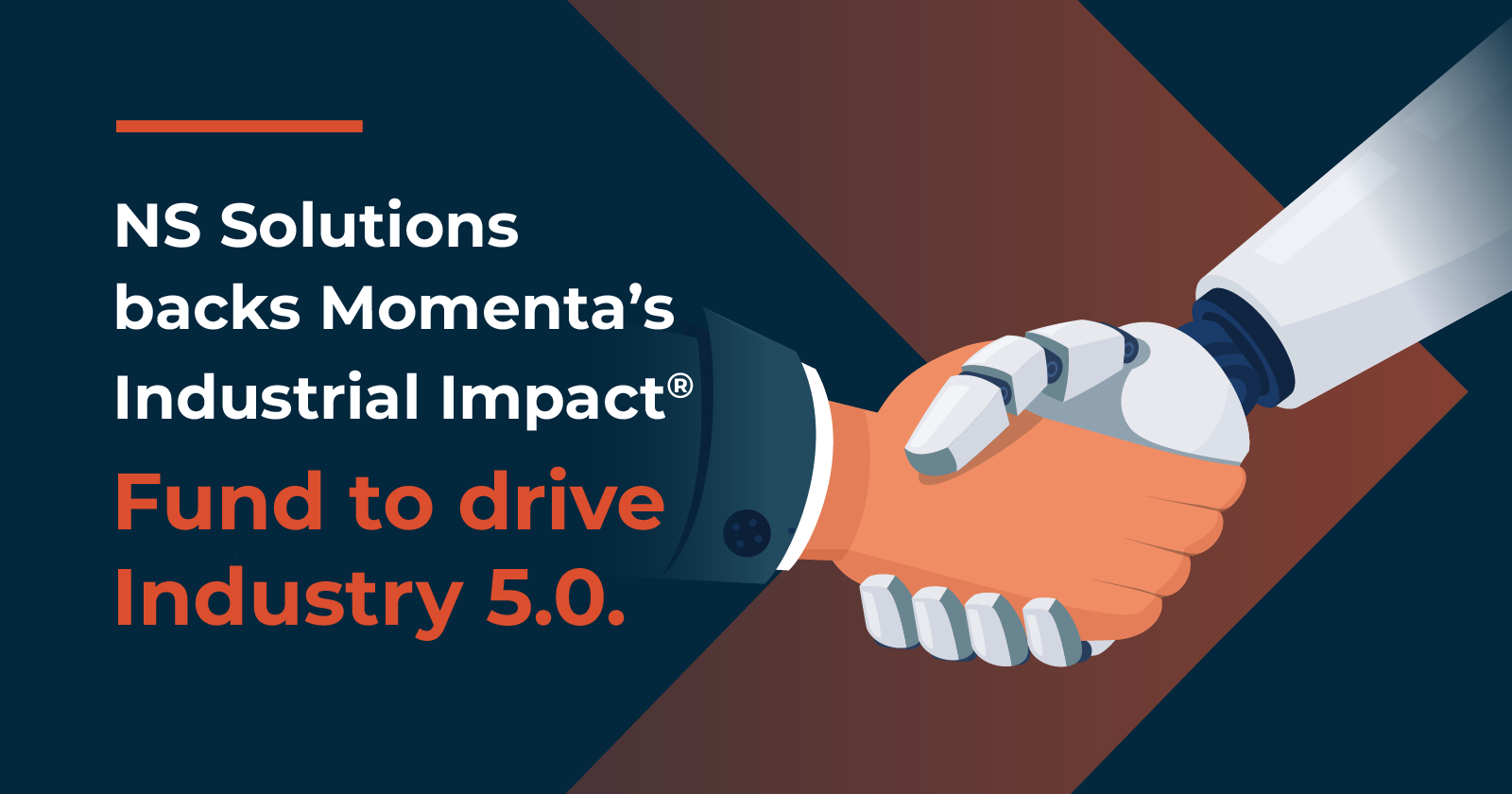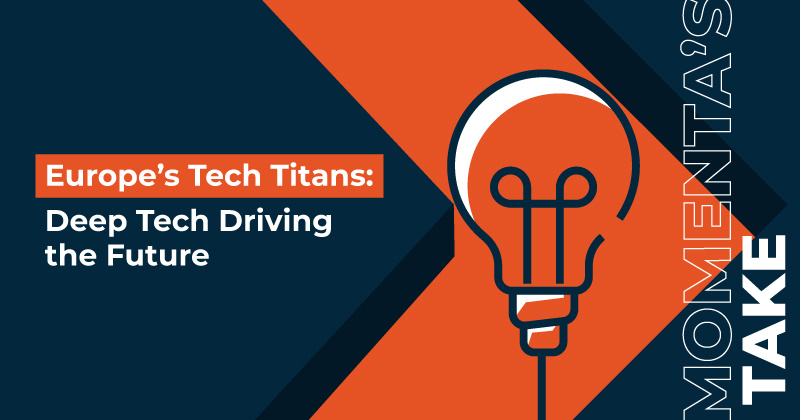PART 1 of 3
Quantum Leaps: Why Quantum Computing?
Ken Forster
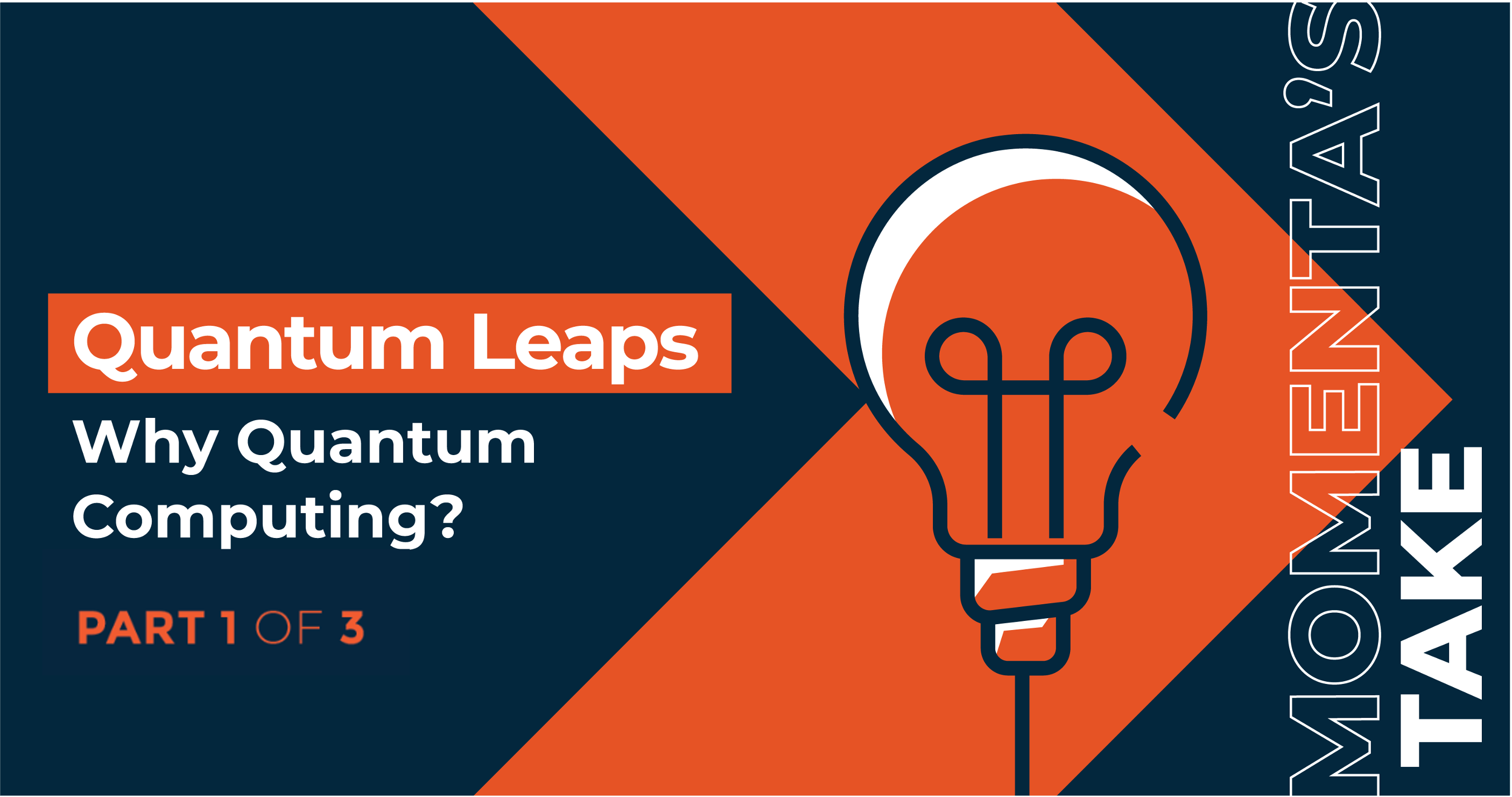
Quantum Leaps: Unveiling the Significance of Quantum Computing
We invite you to explore the limitless potential that quantum computing offers in this three-part series. In this first article, we’ll dive into its significance and advantages, while the subsequent ones will delve deeper into quantum communications and security, quantum sensors, and quantum operations. Join us on this exciting journey as we unlock the unimaginable possibilities of quantum computing.
With its revolutionary principles and capabilities, Quantum science holds immense potential to revolutionize a wide range of industries and sectors. From advanced materials to healthcare, energy to transportation, semiconductors to computing, and communications to digital operations, quantum technology is poised to deliver dramatic advantages and transformative breakthroughs.
With three critical domains at its core, digital transformation is poised to skyrocket in the following key areas:
- Quantum computing
- Quantum communications and security
- Quantum sensing
Economic value is crucial to the significance of quantum computing, which benefits four industries. Looking ahead to 2040, the market size projection combines quantum computing, quantum communications, and quantum sensing.
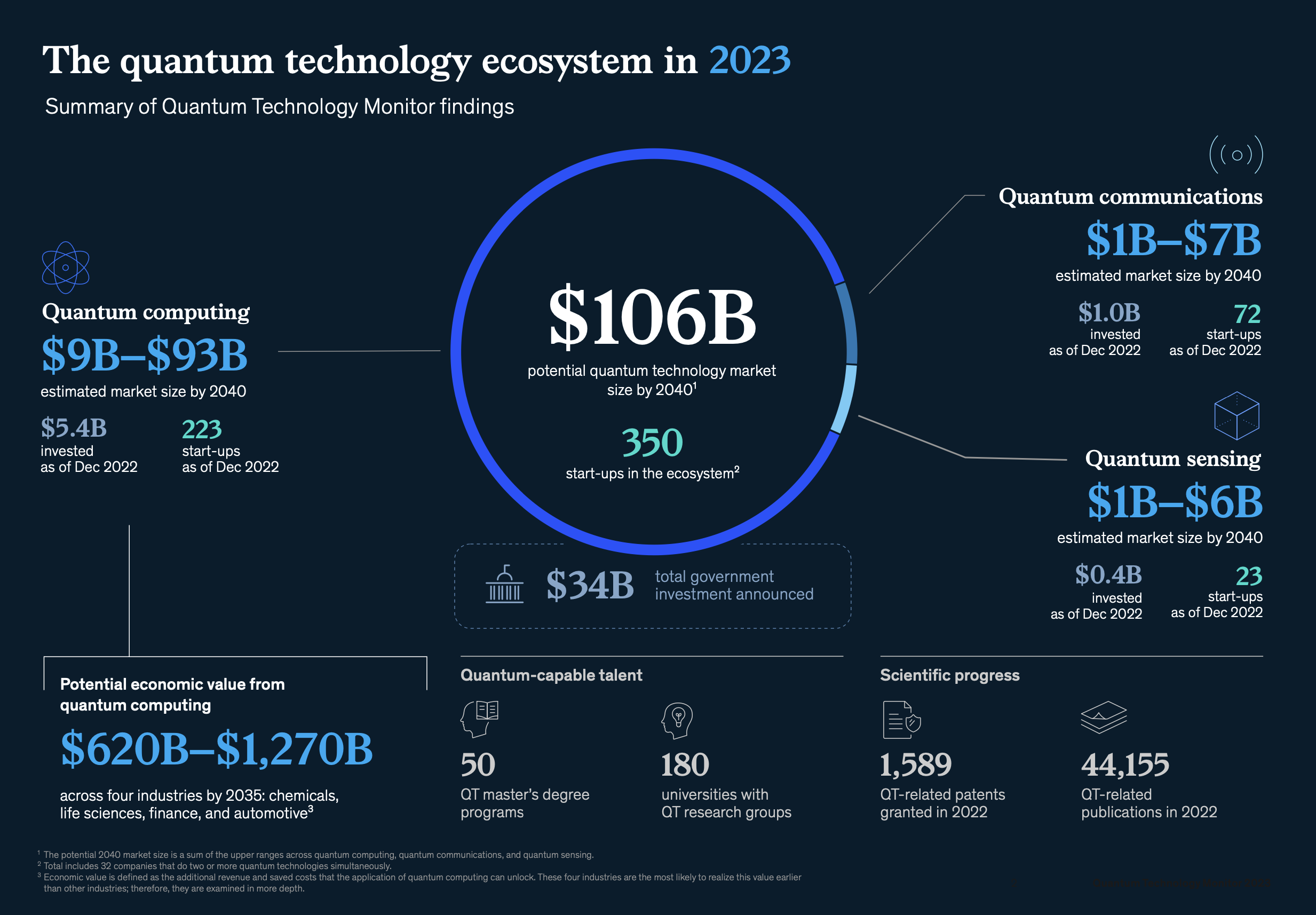
Source: McKinsey & Company: Quantum Technology Monitor, April 2023
Quantum Computing
With corporate and public investment surging, quantum computing applications offer meaningful benefits to the digital industry in core areas such as simulation, optimization, machine learning, and AI. Quantum computers are now moving out of the labs into cloud data centers to address unique challenges for scientific and business applications.
Investment Inflection into Quantum Computing Startups
Investor interest in quantum computing has surged dramatically since 2021. According to a report by McKinsey and Pitchbook, quantum computing startups saw $2.35 billion of investment in 2022. This investment pales compared to the astonishing amount of over $25 billion poured into quantum computing by countries worldwide.
While the sector is still nascent, the market opportunity appears highly promising. According to a report by Future Market Insights, the quantum computing market is forecast to grow at a 23.5% CAGR from $784 million in 2023 to $6.5 billion in 2033.
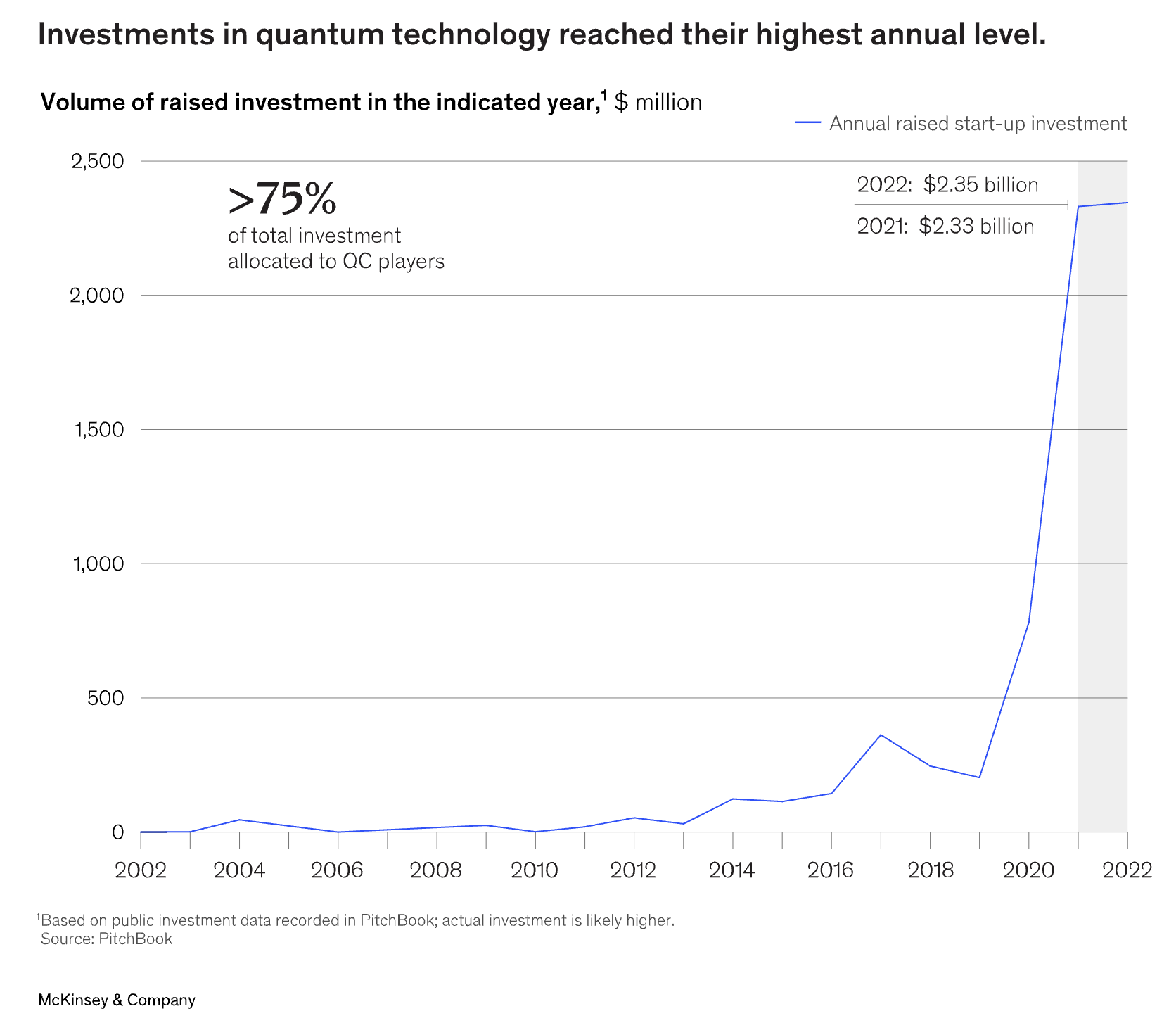
What Sets Quantum Computing Apart?
At the heart of a quantum computer is the QPU (Quantum Processing Unit), which is architecturally analogous to classical CPUs or GPUs. CPUs are used for general computation and in most electronic devices today. GPUs emerged as powerful tools for enhancing graphics in image rendering and gaming. However, their capabilities quickly expanded to encompass domains such as blockchain mining, machine learning, and AI.
QPUs use subatomic probabilistic “qubits” instead of classical digital “0 or 1 bits”. Qubits comprise single natural elements (atoms, electrons, photons, etc.) and are manufactured into a chip to make the QPU. At runtime, the qubits are manipulated into program-specific quantum gates and circuits based on the executed program.
There are many new QPU architectures currently in development. Primary architectures include:
- Superconducting Gate
- Annealing
- Topological
- Trapped Ion
- Photonic
- Natural Atoms
Some are better at solving certain classes of problems than others. There is also an emerging ecosystem of "stack-ware" that simplifies programming and running quantum computers, including mitigating firmware, compilers, simulators, toolchains, development environments, runtimes, applications, and cloud computing access platforms.
A Quantum Leap in Scalability
The remarkable capability of quantum computers to manipulate multiple qubits simultaneously allows them to explore many solutions across the entire solution domain! Whereas computing power in classical computing grows linearly with the total number of digital gates, quantum computer solution capability grows quadratically with every single new gate added. In 2019, 20-qubit systems were the norm; in 2023, we see systems with over 1000 qubits. Quantum computer qubit count seems to increase by an order of magnitude every other year.
Quantum-Classical Hybrids Promise Massive Performance Gains
The industry is now entering a new era of Quantum-Classic Hybrids where quantum and classical compute resources are used together to solve a problem, leveraging the unique strengths of each. “Quantum-classical hybrid” platforms provide a bridge between computing platforms, such as CPU, GPU, TPU, and QPU, and are delivered via cloud access.
The potential is game-changing. A rule of thumb is that running quantum algorithms on a quantum emulator can yield a 10x improvement in solution time over classical computers for some problems. A quantum-classical hybrid platform aims to achieve an astonishing 100-fold boost in performance, while a fault-tolerant quantum computer equipped with 100 or more stable quantum logic gates has the potential to bring about a mind-blowing 1000-fold improvement.
Where Quantum Computing Makes a Difference
The increasing speed and power of quantum computer systems are helping to crack problems that were previously intractable in classical computing. Relevant solution areas include:
Optimization: Route optimization is a combinatorial and discrete problem difficult for classical computers due to the many possible combinations. Routing, Logistics, and Network optimization problems (for vehicles, aircraft, telecom network traffic, etc.) that were otherwise impossible or impractical on classical computers can be rapidly solved on a quantum computer, as all possible combinations can be analyzed simultaneously. One case study saw delivery driver efficiency improve by 80%. Another example saw automated warehouse vehicle utilization increase by 15% with an optimized route layout. In finance, quantum algorithms are uniquely suited to address specific investment portfolio risk optimizations, such as risk reduction and investment return optimization.
Simulation: Quantum computers excel at conducting highly accurate simulations that delve into the intricate behaviors of atoms, encompassing various domains like molecular dynamics, computational chemistry, bio-pharmaceutical molecular exploration, and battery chemistry simulations.
Machine Learning and AI: Training AI models is computationally intensive on classic systems. Running quantum-inspired algorithms on traditional systems offers immediate improvement for certain data classes, up to 10x in some cases. As quantum computers scale, the time to train AI models natively on quantum computers will improve exponentially.
Security: Quantum algorithms such as Shor’s algorithm accelerate the decryption of existing cryptography algorithms. One defense is to adopt new quantum-resistant encryption protocols. NIST has been leading this effort since 2016. Alternatively, defense, communications, and industrial device security firms use quantum computers to generate quantum-computer-resistant cryptography keys.
Getting Started with Quantum Computing
So, where does one go to explore quantum computing? Most providers offer access via a cloud platform or a quantum computing platform host that offers hybrid access. In some cases, it may make sense to develop programs to run in a quantum emulator that executes on a classic computer. In contrast, in other cases, it’s appropriate to run directly on a quantum computer. There are many free tools, primers, and webinars available from vendors, along with shared use cases and solutions.
Changing the Game in Computing
Quantum computing is a game-changer for the next generation of industry, unlocking new possibilities for efficiency, insight, innovation, security, and sustainability. Combining quantum and classical computing in hybrid systems can harness the best of both worlds and accelerate digital transformation of industry and society.
Major Full-Stack QC Vendors
Here are some major quantum computing developers, with links to their websites.
Stay tuned for our upcoming installment!
Dive deeper into our Quantum Computing series:
- Quantum Categories and Quantum Computing (1 of 3)
- Quantum Communications and Security (2 of 3)
- Quantum Sensors and the Quantum Operation (3 of 3)

Momenta is the leading Industrial Impact venture capital + growth firm. We accelerate entrepreneurs and leaders devoted to the digitization of energy, manufacturing, smart spaces, and supply chains. Since 2012, our team of deep industry operators have made over 100 investments in entrepreneurs and helped scale over 150 industry leaders via our award-winning executive search and strategic advisory practices.

